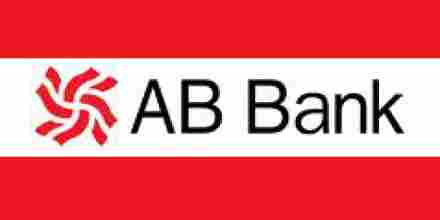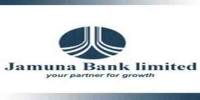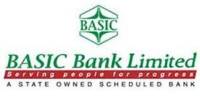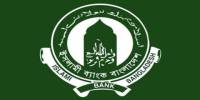This is a Comparative Study between Conventional and Islamic Banking with reference to General Banking Operations of Islamic Banking System, here focus on AB Bank (Islami Banking Branch). Other objectives of this report is to analyze the year wise performance and depict the contribution of Islamic banking Branch of ABBL to its overall performance and to get a clear idea about the Comparisons between Conventional and Islamic Banking.
Objectives of the Study
Primary Objective
The primary objective of this report is to fulfill the requirement of BBA program containing the completion of three-month internship program and preparation of internship report accordingly.
Specific Objectives
The secondary objectives of the study are as follows:
- To get an overview of the banking system of AB Bank Ltd.
- To know the history and development of ABBL.
- To gain practical experience on different functions of different departments like General Banking especially from the perspective of Islamic Banking.
- To know about the rules and regulations of ABBL.
- To acquaint with the over all services which are provided by AB Bank Ltd
- To analyze the year wise performance and depict the contribution of Islamic banking Branch of ABBL to its overall performance.
- To analyze the performance of the bank in terms of the profitability of the Islami Banking branch over the overall banking performance.
- To get a clear idea about the Comparisons between Conventional and Islamic Banking.
Methodology of the Study
This report has been prepared on the basis of the experience gathered during the period of internship. For preparing this report, I have undergone group discussion, collected data and asked some questions and have taken interviewed to the bank officials. I have also gone through different brochures, circulars and reports of the bank. However, I have collected my data from the following sources which helped me to prepare this report.
i) The primary sources of data include the followings:
- Face to face conversation with the bank officers and staffs
- Direct conversation with the clients
- Practical Deskwork.
ii) The secondary sources of data include as under:
- Annual report of AB Bank Limited
- Different manuals and publications of Islamic Banking System
- Unpublished data received from the Branch
- Different text books
- Different circulars sent by Head Office of AB Bank Limited and Islami Bank Bangladesh Limited.
Background of AB Bank Limited
AB Bank Limited, the first private sector bank under Joint Venture with Dubai Bank Limited, UAE incorporated in Bangladesh on 31st December 1981 and started its operation with effect from April 12, 1982.
Dubai Bank Limited (name subsequently changed to Union Bank of the Middleast Limited) decided to off-load their investment in AB Bank Limited with a view to concentrate their activities in the UAE in early part of 1987 and in terms of Articles 23A and 23B of the Articles of Association of the Company and with the necessary approval of the relevant authorities, the shares held by them in the Bank were sold and transferred to Group “A” Shareholders, i.e. Bangladeshi Sponsor Shareholders.
As of December 31, 2006; the Authorized Capital and the Equity (Paid up Capital and Reserve) of the Bank are BDT 2000 million and BDT 2582.76 million respectively. The Sponsor-Shareholders hold 50% of the Share Capital, the General Public Shareholders hold 49.43% and the rest 0.57% Shares are held by the Government of the People’s Republic of Bangladesh. However, no individual sponsor share holder of AB Bank holds more than 10% of its total shares.
Since beginning, the bank acquired confidence and trust of the public and business houses by rendering high quality services in different areas of banking operations, professional competence and employment of the state of art technology.
During the last 26 years, AB Bank Limited has opened 70 Branches in different Business Centers of the country, one foreign Branch in Mumbai, India, two Representative Offices in London and Yangon, Myanmar respectively and also established a wholly owned Subsidiary Finance Company in Hong Kong in the name of AB International Finance Limited. To facilitate cross border trade and payment related services, the Bank has correspondent relationship with over 220 international banks of repute across 58 countries of the World.
AB Bank Limited, the premier sector bank of the country is making headway with a mark of sustainable growth. The overall performance indicates mark of improvement with Deposit reaching BDT 42076.99 million, which is precisely 53.78% higher than the preceding year. On the Advance side, the Bank has been able to achieve 46.32% increase, thereby raising a total portfolio to BDT 31289.25 million, which places the Bank in the top tier of private sector commercial banks of the country.
Offerings of the Bank
AB Bank offers different type of services to its customer. And day by day they are expending the area of services. From the very beginning they gave more emphasis on satisfaction of customers. They offer the general banking facilities such as –receive deposit, giving loan etc. Otherwise they also offer –
- online Banking system
- Western Union money transfer
- ATM
- Pay order
- Demand Deposit
- Credit Card
- Debit Card
- Visa Card
- Sonchoypottra
- Easy loan
- Gold Grace
- Islamic Banking facilities
- Foreign exchange
- Remittance etc.
Branch Orientation
Islami Banking Branch of AB Bank Ltd
To provide the Islamic banking services in accordance with the principles of Islamic Shari’ah, AB Bank has established Islamic Banking Wing and started its functioning by opening full-fledged Islamic banking branch on 23.12.2004. The branch is known as AB Bank Islami Banking Branch, Kakrail, and is situated at 82, Kakrail, Ramna, Dhaka.
Conduction of Islami Banking
Prominent Islami Banker Mr. M. Azizul Huq has joined the Bank as its Islamic Banking Consultant. A dedicated team of experienced Islamic bankers is working under his active guidance both at head office and branch level. A competent Shari’ah Council consisting of Islamic scholars, Ulema, Fukaha and Islamic bankers headed by Mr. Shah Abdul Hannan, a prominent Islamic scholar and former Secretary, Government of Bangladesh has also been formed to guide the Islamic banking affairs. Board of directors as well as management of the bank are very much interested to promote Islamic banking system in the bank aiming at opening more Islamic branches in the near future. AB Bank has already obtained membership of Islamic Banks Consultative Forum (IBCF) and Central Shari’ah Board for Islamic Banks of Bangladesh.
Goals and objectives of Islamic Banking Branch
- To facilitate the Islamic banking system in the country
- To create new entrepreneurs and to arrange required finance for them
- To play effective role for socio economic development of the country
- To give assistance in launching welfare oriented economic system under Islamic values
Islamic Banking Services
The services are mainly of two types like-
- Deposit services
- Investment services
Deposit services
Under Deposit services the following services are being rendered:
- Mudaraba Savings Account
- Mudaraba Short Noticed Account
- Mudaraba Term Deposit Account (with different terms)
- Mudaraba Monthly Profit Account
- Al-Wadiah Current Deposit Account
- Mudaraba Deposit Pension Scheme
- Mudaraba Hajj Deposit Scheme
Investment Services
AB Bank Islmic Banking Wing provides investment facilities for project finance, working capital finance, SME finance, consumer / retail baking finance etc. under following modes:
Hire-Purchase under Shirkatul Melk (HPSM):
Under this mode the Bank and the client procure asset such as machinery, land , car etc. on equity participation basis. The Bank rents out its portion of assets to the client for a certain period. The client pays the rental with a part of principal amount on monthly / quarterly basis. The client gets its proportionate ownership with the payment of monthly / quarterly installments. On maturity, total ownership of the assets automatically goes to the client as and when final payment of the account is made.
Ijara or Leasing:
It is more or less like the HPSM. In this case equity participation may or may not exist. Ownership of the asset is not automatically transferred to the client with the payments of installments. On maturity, the bank transfers the ownership to the client on payment of certain transfer fees.
Bai-Muajjal / Bai-Murabaha:
These modes are applicable for working capital finance. Under these schemes bank purchases goods / raw materials as per requirement of the client. In case of Bai-Muajjal bank receives the sales proceed on deferred payment basis. On the other hand in case of Bai-Murabaha Bank receives the sale price at the time of delivery of the goods / raw materials. Before handing over the goods / raw materials the bank generally keeps the same in its custody under pledge.
Musharaka :
this mode the Bank and clients jointly participate in a project, in a scheme or project. Profit is shared between the Bank & the concerned client as per pre-agreed ratio. On the other hand loss is shared according to capital ratio.
Mudaraba:
Under this mode bank finances the scheme as a Shaheb-Al-Maal (owner of the capital). Profit is shared between the two sides as per pre-agreed ratio.
Sector of Investment
Islamic Banking Wing of the bank finances in all sectors i.e., Industry, business, Agriculture, Real Estate etc. if purpose of the investment is permissible under Islamic Shari’ah.
Limit of Investment
Investment is offered to the extent of single borrower exposure limit as fixed by the Bangladesh Bank from time to time.
Foreign Trade
Islamic Banking Wing provides the following services at its foreign trade desks:
- Opening of LCs
- Post -Import Finance
- Export bill purchase and negotiation
- Pre-shipment financing etc.
AB Bank Islamic Banking Wing has been continuously trying to expand its service horizon keeping the necessity of valued clients in view and upholding the principle of Islamic Shari’ah.
Progress of Islami Banking Branch
Islamic Banking Business (IBB) has made remarkable progress in its third year of operation in 2007. The single branch of Islamic banking Window of AB has been able to earn confidence through its efficient service and products designed to cater to particular segment of customers. Three new deposit products were launched after being cleared by the Shari’ah Council of the bank.
Islamic Banking Software
Islamic Banking Software named “ABABIL” has been procured and as in the final stage of implementation/ roll-out. This will enable our bank to extend its Islamic banking services throughout the country by utilizing the the existing online branches.
Shari’ah Compliance
The Shari’ah council of the bank assigned with the overall supervision of the Islamic Banking business comprises of eminent Ulema, Fuquah, Islamic Scholars and bankers. There is a Standing Committee of thecouncil to address operational issues in light of the Shari’ah principle. During 2007, Shari’ah council met three times while the standing met twice.
Objectives of Islamic Banking
The fundamental objective of Islamic banking is to bring about departure from the conventional system moving from debt-based relationship to an equity based and stake taking economy. While there are scopes for some debt-based transactions of the principle of quard-e-hasana, the overall trust of the Islamic banking towards equity based and risk sharing arrangements. This is distinct from the capitalist approach where the whole economy is revolved round making money by manipulating, managing the evils of interest and compounding interest mechanism. This is the root cause of exploitation in society and leads to inequitable distribution of income and wealth in the economy generally the objectives of Islamic banking are-
- Providing banking services of the highest standard according to Islamic Shari’ah without dealing in Riba (interest on money) and by using the-state-of-the-art technology in computer, telecommunication and information system.
- Investing funds prudently to achieve optimum profits for the mutual benefit of customer and the bank.
- Coordination, cooperation and integration with other financial bodies that apply Islamic Shari’ah in their dealings, in order to support creating a base and regulation for an Islamic financial system
- Development of the Islamic society in all fields of the economy by investing in the industries, agriculture, commerce and real estate in order to provide job opportunities.
- Promotion of social benevolence through its Islamic methods particularly through Zakah.
- Contributing to the welfare of the society in line with the five main tenants of Islam, namely protection of life, purity of mind, property, honour and social justice.
- Promoting the savings habit and encouraging people to invest wisely within the parameters of Islamic Shari’ah through investment and finance instruments to suit individual requirements.
- Making available the necessary capital for entrepreneurs for the establishment of economic projects and creation of alternative instruments according to Islamic Shari’ah
Financial Framework of Islamic Banking
Islamic banking is based on an ethical framework. It is not only a shifting from a debt-based economy to an equity-based economy but also a movement from pecuniary situation to an economy of ethical norms and social commitments. There is a framework of Halal and Haram within which all economic activities, private and public has to take place. The activities like pornography, gambling, prostitution, the promotion of alcohol, tobacco, cigarettes, cinema etc would be treated in the capitalist system as productive because it is supposed to be satisfying some demand but in the Islamic framework which would be unacceptable. Therefore ethical and social dimensions are integral to the Islamic Banking approach.
Methods/ Process of investment in Islamic Banking
- the first process is direct Investment through which the people who have money in excess of their needs and the other who have productive ideas and expertise join hands to pool their resources for production and exchange. This is the oldest and one of the most common forms of productive cooperation between money and entrepreneurship.
- The second is financial intermediation. In this process, there emerges a series of banks and financial Institutions, which act as intermediaries between savers and producers. In principle, direct investments as well as financial intermediation are accepted as part of the Islamic framework.
General banking
General banking department is the “heart” of all banking activities. The general Banking section is what keeps the overall banking going. All sorts of day- to-
day transactions are performed in here as it plays a vital role in banking. The general banking department that consists mainly of the following are given below:
- Account opening section
- Clearing & Remittance
- Cash section
- Financial Control Department
Account opening section
Account is the systematic record of transaction. Bank Account is a contract between the Bank and the client, allowing the customer to use Bank Service against a cost of fees.
This is the best way a Client can build relationship with the Bank.
Deposit of different kinds and schemes are accepted on the Mudaraba principle of islamic shari’ah. Under the above principle the client is the shaheb-al-mal and the bank is mudareb. As per contract the bank is authorized to Mudaraba funds at joint risk of the client and the bank. The client can not interfere/ participate in the management of the fund. Any profit resulting from the investment of Mudaraba fund is distributed between the client and the bank as per principle of distribution of profit announced by the bank as at the beginning of the year or as per contract. Loss is to be born by shaheb-Al-Mal after adjustment of the same from equity and the bank does not get any remuneration for the management of fund.
The main purpose of opening account is to deposit money. Deposit account can take on a various forms.
They consist of two forms-
- Demand or Al-Wahdia current deposit.
- Time or Mudaraba Savings deposit.
The basic things that any accounts require are:
- A valued client’s Introduction.
- Two photographs of the concerned party.
- Taka 1000 cash deposit for Mudaraba Savings deposit and Taka 5000 cash deposit for Al-Wahdia current deposit.
Classification of Account
In Islami Banking Branch of AB Bank Ltd. the following accounts are under operation:
Deposit Scheme
| 1. | Deposit |
| |
| 2. | Deposit Scheme |
|
Deposit
Al-Wahdia Current Account
Most businessmen maintain current in order to make their daily business activities. This account’s funds change most frequently than any other accounts because customer used to withdraw and deposit funds in regular basis.
Types of AWD Account:
- Individual Account
- Proprietorship A/C
- Partnership A/C
- limited company A/C
- Cooperative A/C
- Special A/C
The summery of the rules and regulations to open a current account as follows :-
- A minimum deposit of TK. 5000.00 is needed to open a current account.
- Deposit is accepted on Al wadiah principles which mean Al amanah with permission to use. According to this principle, bank can use the fund of the account along with other funds as per Islamic Shari’ah at bank own risk. Account holder will not share any profit/loss.
- The bank charges an incidental charge of TK.50.00 for every 6 months for the maintenance of the account.
- In case of the closure, the bank charges TK. 100.00 as closing charge of the account.
- Withdrawal of money is allowed only through the leaves of the cheque book issued by the bank
Mudaraba Savings Account
This account is a popular account maintained in Banks. The different matters relating SB account are described in the following discussion. The summary of the Rules and regulations to open a savings account is as follows:-
- A minimum deposit of TK. 1000.00 is needed to open Mudaraba Savings
- This type of Deposit account will be conducted on Mudaraba Principles of Islamic Shari’ah. Account holders shall share income derived from investment made out of the Mudaraba funds in economic activities permitted by Islamic Shari’ah.
- The Mudaraba Saving Deposit Account holders along with other Mudaraba depositors shall get premium 65% of the income derived from the deployment of Mudaraba fund in the investment according to their proportion in the total investment during an accounting year applying the weightage rate of 0.75.
- Provisional profit will be credited twice a year i/e. on 30the june and 31st Final profit is determined and adjusted at the end of the year i.e. after finalization of account.
- Any person of more than 18 Years having sound mind can open and operate this account singly or jointly.
- In case of a minor (a person below 18 years), a guardian can open and operate this account on his or her behalf.
- Clubs, societies, sole proprietorship firms, partnership firms, Limited Companies either public or private and other similar organization are eligible to open such account.
- More than one account can not be opened in the same name.
- Money would be withdrawn through cheques. Withdrawal cannot be more than twice a week and generally the amount will not be more than 25% of the balance available, subject to maximum TK.15000.00.
- The closing charge is TK.50.00.
Mudaraba Short Notice Deposit
This special types of account is just in between CD and MSD which gives profit at the rate of 6%(simple rate of profit calculated annually on daily balance) but requires 7 days-30 days prior notice of cash withdrawal. It is notice, the amount of money is withdrawn without notice, and then profit won’t be given on the said money. If any financial organization or autonomous bodies open this A/C hen no excise duty will be deducted but source tax will be deducted.
Mudaraba Short Notice Deposit is conducted on Mudaraba Principle of Islamic Shari’ah. Account holders shall share income derived from investment made out of the Mudaraba funds in economic activities permitted by Islamic Shari’ah.
Mudaraba Term Deposit Receipt:
In this types of deposit, a large amount of money is deposited in the bank for comparatively higher rate of interest (simple, not communed but calculated annually) is offered to the depositor for the period of 3 months, 6 month, 1year with the condition that s/he can not withdraw the amount before maturity but can draw the profit on a monthly basis.
Maturity & Profit
| Particulars | Rate of profit |
| 1 to 3 month | 11% |
| 3 To 6 month | 11.50% |
| 6 to 12 month (year) | 12% |
If the client not applies for renewal after maturity then the interest will be imposed after every three month.
The summary of the Rules and regulations to open a MTDR account is as follows:-
- Terms Deposit Account will be conducted on Mudaraba Principles of Islamic Sariah Account holders shall share income derived from investment made out of the Mudaraba funds in economic activities permitted by Islamic Sariah.
- Term of deposit are Three months, six months, twelve months Twenty four months, Thirty six months and above.
- Benefits of full weightage with yearly cumulation of profit shall become payable if withdrawn on maturity.
- The deposit receipt is not transferable except to this bank and the MTD receipt must be preserved with due care by holder of the MTDR. The bank will not be responsible if the lost receipt is paid by way of cheating/ deception.
- Funds covered by the Deposit Receipt are payable in accordance with the laws and regulations current at the time of withdrawal or repayment. The depositor will be bound to receive the profit at the provisional rate if the account is closed before finalization of yearly profit.
- The bank can deduct any Govt. tax & levies to be imposed by the Govt of Bangladesh any time from time to time.
Deposit Scheme
Mudaraba Pension Deposit Scheme
This is an attractive deposit scheme of Islamic banks. It is governed by Mudaraba principles also. All categories of particularly the small income group can be able to make savings on monthly installment basis at a very higher rate. Generally the term is for 5 to 10 years and size of installment is minimum Taka 500 to maximum Taka 20000.00.
Mudaraba Hajj Deposit Scheme
Hajj is one of the basic pillars of Islam.Islamic banks are accepted deposit on installment basis or in peacemeal from the intending pilgrims under Mudaraba principles. Considering the religious aspects of this account and to inspire the individual to perform hajj, a better rate of profit camparing to other Mudaraba Accounts is given to this Hajj Account. The aim of this deposit is only to perform hajj. The intending pilgrim may choice different terms from 1 to 25 years as per his capacity and age.
Mudaraba Monthly Profit Deposit
For the benefit of the retired service holders and wage earners residing abroad who want to help their departments/ relatives by contributing a certain amount of money on monthly basis from the of their one time deposit, this bank has introduced this Mudaraba Monthly profit Deposit Scheme in accordance with the Mudaraba principles of Islamic Shari’ah. Any individual may open account under this scheme by depositing a minimum amount of taka 100000.00 and multiples thereof at a time for a specified term. Monthly provisional profit, is given to the account just after completion of thirty days from the date of opening of the account.
Mudaraba Probable Millionaire Scheme
It is a Mudarba term deposit account where the depositor deposits on a monthly basis and including profit they can get more or less 1000000.00(Ten Lac). The period for this account would be minimum three years and maximum six years. Here the rate of monthly deposit, provisional profit rate in the following-
| Year | Monthly Deposit | Total Deposit | Income Tax | Receivable by the Depositor |
| 3 4 5 6 | 23602.00 16766.00 12836.00 10138.00 | 1016711.00 1021748.00 1025586.00 1030084.00 | 16704.00 21698.00 25543.00 30315.00 | 1000007.00 1000050.00 1000044.00 1000070.00 |
Mudaraba Third-Terminal Profit Scheme
This is an attractive deposit scheme of Islamic banks. It is governed by Mudaraba principles also. The depositor can open this account by depositing minimum taka 25000.00 or any multiples of this amount. Generally the term is minimum three years and the depositor can get 70%investment opportunity against this account
Remittance and Clearing
Remittance Section
Remittance means transmission of money from one place to another. There are different modules of remittance. They are as follow:
- TT-Telegraphic Transfer
- DD-Demand Draft
- PO-Pay Order
TT-Telegraphic Transfer
TT is the quickest method of transferring funds from one place to another. The remitting branch sends a telegraphic/ telephonic/ Fax message to the branch at the other end, to pay a certain sum of money to a named payee.
DD-Demand Draft
It is an instrument containing an unconditional order of one bank office to pay certain amount of money to the named person or order the amount therein on demand. DD is very much popular instrument for remitting money from one corner to another.
Charges of DD & TT
Commission @10% but minimum taka 25.00
Postage Charge: taka 25 for DD
Mail/ Phone Charge: Taka 50.00for TT
PO-Pay Order
It is process of money transfer from payer to payee within a certain clearing area through banking channel. A person can purchase payment order in different models such as Pay Order by cash, Pay Order by cheque
Pay Order can be issued in favor of the payee with commissions paid. The Pay Order can be made either from the account of the issuer or by giving the account to the Bank if the issuer has no account with Bank. The rate of commission charged for Pay Order is as follows:
| Amount | Commission | Vat |
| From TK 1.00 TK 1,000.00 | TK. 25.00 | TK. 4.00 |
| From TK 1,000.00 to TK 1,00,000.00 | TK. 50.00 | TK. 8.00 |
| From TK 100000.00 to TK 500000.00 | TK. 75.00 | TK. 11.00 |
| Over 500000.00 | TK 100.00 | TK. 15.00 |
The pay order is presented to the bank either through clearance or for credit to the clients accounts. When payment, relative entry is given in the pay order register with the date of payment.
- In case of collecting DD, PO following things are to be carefully checked: –
- Instrument of ABBL, IBB.
- Crossing seal
- Clearing seal
- Branch name
- Amount same in the word and figure.
- Signature verification
- Avoid the stop order P.O, D.D
- Test key verification. Every T.T must have test key. D.D over tk.25000 must have test key.
- Maintenance of T.T / P.O /D.D issue and payable books.
- Balancing at the end of the month.
Clearing section
Clearing stand for mutual settlement of claims made in among member banks at an agreed time place in respect of instruments drawn of each other:
Clearing House is an arrangement under which member banks agree to meet, through their representatives, an appointed time and place to deliver instruments drawn on the other and in exchange to receive instruments drawn of them.
The nit amount payable or receivable as the case may be, is settled through an account kept with the controlling bank (Bangladesh Bank).
Types of clearing
- Outward Clearing
- Inward Clearing
Out ward Clearing
When a particular branch receives instruments drawn on other bank within the clearing zone and sends those instruments for collection through the clearing arrangement is considerate as Outward Clearing for that particular branch.
This branch knows as collecting branch.
Inward Clearing
Clearing returns (inward) consists of those instruments which were presented by us to other banks for payment but have been returned and unpaid by them due to specified reason through the clearing house.
Cash Department
Cash Department is the most important part of General Banking. Cash department should be placed in a branch from where manager can watch everything from his table either clients or the vault. It is the most important department of the bank since from desk cash department has direct interaction with customers. Usually cash department receives and pays cash directly which work as a media to communicate with the clients. In the Islami Banking Branch I have got acquainted with cash receiving and cash payment procedures. Some register books uses in the cash department are mentioned bellow:
- Receiving Cashier’s Book
- Payment Cashier’s Book
- Cash Balance Book
- Vault Register or safe–in and safe-out Register
- Key Register
- Remittance Registers.
In addition, I have also learnt the procedure of cash-in and cash-out from the vault. I have also got acquainted with systematic procedure of cash receiving through different vouchers as well as payment procedure by different cheque and vouchers.
Cash Receive:
Cash is the blood of a branch. It is the life of a bank. Cash may be received by-
- Cash Receiving by Pay Slip
- Cash Receiving by TT, DD, Pay-Order, MTDR.
Cash Receiving by Paying-Slip:
By paying slip we receive cash of AWD or MSD account. When we receive cash by paying slip, officers check the paying slip if there is any discrepancy, if everything is found to be in order, then they make entry of the amount in the scroll register and put receiving seal on paying slip.
Cash Receiving by TT, DD, Pay-Order, MTDR:
At first the form filled up by the party should be checked to verify whether is any discrepancy, if everything is found to be in order, then officers make entry of the amount in the scroll register and put receiving seal on the respective form.
Cash payment
Usually cash is paid against cheque, pay-slip, pay-order, DD and debit voucher. While paying cash against any instrument, officers first verity whether there is any material alteration on the instrument. He also check the instrument if it is in holder in due course and holder in due time. Then he verifies the signature of payee. If everything is in order, he pays the amount to the respective payee.
Position of the Cash Department
The position of the cash department is very important. The cash department should be at a safe place. If should be at the middle position of the branch. The cash counter and vault should be a close to cash department. The cash position of the Islamic Banking Branch AB Bank Limited is in the front side of the branch and its safe and vault is at the back side of cash department.
Duties and Responsibilities of Cash in Charge
- Holds the key of cash safe.
- Receive cash from other bank/Branch and acknowledge, where necessary. Opens the cash safe before commencement of business along with other personal holding the key.
- Supervise receipt and payment of cash.
- Supervise the carrying of the cash to the cash Department.
- Delivers cash to the paying cashier against receipt on a memo.
- Countersigns the credit vouchers if he is an attorney.
- Arranges sending cash to other Branch.
- Check the receiving cashier’s and paying cashier’s receipt/payment sheet and collect cash from them.
- Writes the cash balance book and cash position memo and signs them
- Maintains record of stamped forms.
- Investigate and inform the manager about excess or shortage of cash.
- Gets books and cash checked by manager or authorized officer.
- Supervise the custody o f cash in the safe and books in the strong room.
- Checks the drawers of the cashiers before leaving the office
Financial Control Department
This is the most confidential department of a bank. Recording all kind of transaction of the branch, confirming their accuracy and preparing statements are the main job of this dept. Now a day, under computerized banking system, the jobs of account dept. become very easy. Now the computer directly prepares the clean cash statement and the supplementary statements on party ledger vouchers. The account also manually doses other works as for extra security.
The function of the accounts dept. can be divided into two parts:
- Daily Function,
- Periodical Function.
Daily Functions
- Posting the a/c to a/c transfer transaction in transfer register,
- Preparation of supplementary statement,
- Computer posting of different transactions that occur in a day the account officer examines whether cashbook has agreed or not.
Periodical Functions
The routine periodical tasks performed by the Financial Control Department are as are given in the following:
- The periodical function of this dept. is to prepare different types of statement for its own branch, Head Office, Bangladesh Bank.
- Prepare the monthly salary statements for the employees
- Publish the basic data for the branch, which is sent to the Head Office to maintain Cash reserve requirement
- Prepare the monthly position for the branch, which is sent to Head Office to maintain liquidity requirement
- Prepare the weekly position for the branch comprising of the break of sector wise deposit, credit etc.
Comparisons on the basis of Deposit
The Mudaraba deposit accounts of Islamic banks I different from the Savings Bank account of a conventional bank. Mudaraba is a form of business contract where one party supplies money and the other manages the business by investing labour, skill and time. The Financier is called Shahib-al-Maal and the person who undertakes the venture is Mudarib.
Mudaraba principles implies that the bank receive deposits from the depositor with the authority that the bank will have exclusive right to manage the fund and the profit resulting from such deposit will be shared between the bank and the depositor at a pre-agreed ratio and the loss, not the resulting from the negligence of the bank or any of its representative, will be borne by the depositors. Profit-loss sharing i.e. Mudaraba saving Account and various term deposits of Islamic banks are conducted on this principle. Through this account the depositors do not acquire any management (voting right) on the bank or on the deposits
| Conventional Banking | Islamic Banking |
| Collection of deposit on the basis of interest | Collection of deposit on the basis of profit&loss sharing |
| A conventional bank has to guarantee all its deposits. | Islamic bank can only guarantee deposits for deposit account, which is based on the principle of al-wadiah, thus the depositors are guaranteed repayment of their funds, however if the account is based on the mudarabah concept, client have to share in a loss position. |
| Their depositors do not share any profit or bear any loss.
| Mudaraba depositors are to share the loss if any, incurred out of investment made from mudaraba Deposits. |
Rate of Profit Distribution on Deposit
Income derived from the use of Mudaraba deposits i.e. any benefit outy of investment activities of the bank using Mudaraba funds are shared by the bank and by the all types of Mudaraba depositors as per agreed ratio. These activities of the bank are done under the principles of Islamic shari’ah. The depositors are not entitled to share any income of the bank derived from miscellaneous services other investment. Also the depositors will not share any income derived from investing bank’s equity and other cost-free income.
However the Mudaraba Term Deposit Account Holders along with other Mudarabah depositors shall get minimum 65% of the income derived from the deployment of Mudarabah fund in the investment according to their proportion in the total investment during an accounting year applying the following weightage-
| Mudaraba Term Deposit | Weightage Rate |
| 36 months and above | 1.00 |
| 24 months | 0.98 |
| 12 months | 0.96 |
| 6 months | 0.92 |
| 3 months | 0.88 |
Benefits of full weightage of yearly cumulation of profit shall become payable if withdrawn on maturity.
But in case of Conventional Banking the deposit rate is fixed even if the bank can not employ the deposits of the depositors. It is not the matter of depositors’ headache whether the bank can make profit or not.
The rates of different amount of fixed deposit for different time period are in the following page-
| Interest Rate of Fixed Deposit under conventional Banking | |
| Fixed Deposit (Time Deposits) | |
| 15 (fifteen) Days | |
| 1,00,00,000 & above | 10.00% |
| 1 (one) Month | |
| 50,00,000 & above | 12.00% |
| 3 (three) Months | |
| 1 to 10,00,000 | 11.75% |
| 10,00,001 & above | 12.25% |
| 6 (six) Months | |
| 1 to 10,00,000 | 12.00% |
| 10,00,001 & above | 12.50% |
| 1 (one) Year | |
| 1 to 10,00,000 | 12.50% |
| 10,00,001 & above | 13.00% |
| 2 (two) Years | 12.75% |
Comparisons on the basis of Investment
| Conventional Banking | Islamic Banking |
| The mode of investment is basically lending. | The basic mode is investment through Bai+lease+direct Investment |
| Since income from the advances is fixed, it gives little importance to developing expertise in project appraisal and evaluations. | Since it shares profit and loss, the Islamic banks pay greater attention to developing project appraisal and evaluations. |
| Purpose of the loan is considered with less importance. | It is the most important to consider the purpose of the loan. |
| National interest is the secondary consideration. | National interest is the primary consideration. |
| Diversification of profit is the most important consideration | Diversification is not a prime consideration. |
| Close and constant supervision and monitoring is must be a routine work | Close and constant supervision and monitoring is not a routine work |
| In conventional Banking there is no practice of Musharaka, Mudaraba, Bai-Salam modes of Investment and most of their income can be recognized on accrual basis. | In Musharaka, Mudaraba, Bai-Salam modes of Investment, income cannot be accounted for on accrual basis. |
| No bai-Muraba and bai-muazzal investment in conventional banks. They charge interest/ penalty interest for delay in payment/ repayment. | For delay of payment of investment by the clients, in case of Bai-Mudaraba and Bai-Muazzal etc. investment further amount of profit cannot be charged |
| They do not pay a certain amount to the depositor from their investment income, rather pay fixed rate of interest irrespective of investment income. | Islamic Bank is to pay zakat 2.50% or 2.58% on its reserves. |
Comparisons on the basis of Accounting
The basic accounting Principle (Golden Rule) in determining Debit or Credit for Accounting Entries is universally accepted. In banking transactions the Golden Rule is also accepted. In Islamic Banking the Golden Rule is also accepted.
The golden Rule is as under-
Assets : An increase -Debit
A decrease -Credit
Liabilities : An increase – Credit
A decrease – Debit
Capital : An increase – Credit
A decrease – Debit
Income : An increase – Credit
A decrease – Debit
Expenditure : An increase -Debit
A decrease -Credit
In Islamic Banking accounting the main difference with conventional Banking is that Islamic Banking can not deal with interest transaction and also cannot deal with Haram business.
The differences are shown in the following page-
| Conventional Banking | Islamic Banking |
| They only follow International Financial Reporting Standards (IFRS), Bangladesh Bank guidelines, The rules of the Income tax, The rules of the companies Act, The rules of the Sec. | Islamic Banks are to follow Accounting and Shari’ah standards developed by Accounting and Auditing Organization for Islamic Financial Institution (AAOIFI) in addition to International Financial Reporting Standards(IFRS) developed by International Federation of Accountants, Bangladesh Bank guidelines, The rules of Income Tax, The rules of Companies Act, The rules of the SEC. |
| They conduct their transactions on interest basis. | They cannot engage in any interest transactions. |
| Interest is their main income | If any interest is included/ entered in the operation of the banks, that should be excluded from the regular income of the Bank |
| They do not follow the Shari’ah rules and regulations. | If any income is earned violating Shari’ah Principles that cannot be included in the distributable income of the bank. |
Comparisons on the basis of Performance
Differences on the basis of performance depend on the various performance level of banking performance in the Islami Banking Branch that varies from the performance level of AB bank Limited. For conducting business in accordance with Islamic Shari’ah the differences on performance level are significant.
Deposit of ABBL
Like deposit the investment is also increasing in the Islami Banking as well as the conventional banking in AB Bank Limited. But the percentage of investment is not as much higher as deposit in the Islami Banking of AB bank Limited.
Return on Asset (ROA)
Return on asset is one of the important indicators of measuring performance through which we can understand the rate of net profit after tax returned to the utilization of branch assets. As the branch does not separately give tax, I assume and calculate 45% tax given by the branch itself for the sake of my study. If we see the graphical presentation of return on Asset (ROA) of ABBL IBB, we can understand that the ROA of Islami Banking branch of AB Bank Ltd is increasing at about same rate with Overall performance of AB Bank Ltd after meeting up its primary loss of initializing the system. After 2006 the ROA is increasing here at a satisfactory rate in Islami banking branch for practicing even Shari’ah-based banking.
Findings
Though the entry of Islamic Banking into the field of local financial market of Bangladesh and international financial markets has been well received, it has yet to cross many hurdles before it can claim to be an institution capable of handling the needs of world financial markets. I have identified those positive and negative findings during my study of differentiating Conventional banking from Islamic Banking. However those findings are tried to depict below-
- The Islamic Banks in Bangladesh have good prospects in our country. As the Islamic Banks meet both banking & ethical expectation, the people of the country have reposed a great deal of trust & confidence on them.
- Islamic banks operate on Islamic principles of profit and loss sharing, strictly avoiding interest, which is the root of all exploitation and is responsible for large-scale inflation and unemployment.
- An Islamic bank is committed to do away with disparity and establish justice in the economy, trade, commerce and industry; build socio-economic infrastructure and create employment opportunity.
- But like their counterparts around the world, the Islamic Banks in Bangladesh as well as in Islami Banking branch of ABBL are also facing some legal and practical constraints.
- Absence of Islamic money market, shortage of skilled manpower, lack of regulatory supervisory framework & shortage of link institutions are some of example of constraints for practicing Islamic banking operation
- Sometimes people become discouraged to deposit their money to the Shari’ah practiced bank as are to share the loss if any, incurred out of investment made from Mudaraba Deposits
- The Islamic Banks need a distinct organization & management structure to suit their purposes, but the branch is established on traditional organization & management structure.
- The Islamic Banks (full fledged) and Islamic Banking Branches are facing serious problems of lack of manpower having proper Islamic Banking knowledge due to non existence of appropriate and institutional supply line of Islamic Bankers.
- Sometimes some investment clients even being Muslims have no Shariah knowledge especially in respect of Riba, Permissible, and Prohibition etc. in financial transaction. It is a fact that without the basic knowledge of Shariah and adherence of the clients to the concepts of Halal and Haram Islamic Banking has become a difficult task.
- Most of the Islamic Banks operate on Bai- Murabaha, Bai Muazzal, Bai- Salam, Istisna, Hire Purchase/ Leasing mode of Investment i.e. Islamic Banks prefer to run on markup/ guaranteed profit basis. For this reasons, some times, the conventional Economists and general people fail to understand the real difference between the Islamic Banking and conventional Banking.
- Due to the application of limited modes of investments v.z. Bai-Murabaha Bai-Muajjal ,clear distinction could not yet be made to the general people between Islamic Banks & Conventional Banks.
Conclusion
The concept of Islamic Banking is a very recent innovation to the Banking world. At the beginning the world was not familiar with Islamic Banking. In the very recent stage banking system was only understood a Capitalist system based on interest. Islamic Banking system emerged with its unique feature of interest free system. The focal point around which Islamic banking system revolved is the straight departure from interest. Based on the Shari’ah law all dealing, transaction, business approach, product feature, investment focus, responsibility of Islamic Banking lead to the significant difference in many part of the operations with as of the conventional. The growth of Islamic banking in Bangladesh is progressing day by day. The remarkable shifting or conversion of the conventional banks and their branches into the Islamic lines, signals high acceptance of the interest-free banking by the public in general. Moreover like their counterparts around the world, the Islamic Banks in Bangladesh as well as in Islami Banking branch of ABBL are also facing some legal and practical constraints. But with only minor changes in their practices, Islamic banking can get rid of all their cumbersome, burdensome and sometimes doubtful forms of financing and offer a clean and efficient interest-free banking. All the necessary ingredients are already there. The modified system will make use of only two forms of financing — loans with a service charge and Mudaraba participatory financing — both of which are fully accepted by all the Muslims. Thus such a system will offer an effective banking system where Islamic banking is obligatory and a powerful alternative to conventional banking where both co-exist. Additionally, such a system will have no problem in obtaining authorization to operate in non-Muslim countries.
Recommendations
To sustain and develop the Islamic banking system with its ethical and intrinsic values system, Islamic banking practiced banks and branch of the country have to strive to solve the problems mentioned in the findings, which stand in the way of their growth and survival. However, the recommendations may be the following-
- It requires complete examination on the Islamic Banks whether they are run by Shari’ah Council and competent professionals who are really practicing Muslims.
- The initiative, drive, farsightedness and relentless efforts of the people who are associated with the Islamic banking system may give it a great boost & momentum.
- The personnel should be equipped enough with proper Islamic Banking knowledge to meet the growing demands of Islamic Banking
- All of the people working in Islamic Banks should be well conversant with Islamic Banking modes and its operations
- The inspection and supervision of Bangladesh Bank and its massive training program on Islamic banking both at home and abroad should be equally familiar with different operational methodologies of the Islamic banking system.
- People should be made convinced and understood about the justification of real meaning and practice of Islamic Banking. They should really understand the basic difference between Conventional and Islamic banking.
- Lack of Regulatory and Supervisory Framework for Islamic Banking, Shortage of Supportive and Link Institutions are to be met up to meet the growing demand and sustain the growth of Islamic Banking.
















